Analyzing Grief Theories and Worden's Mediators for Effective Support
VerifiedAdded on 2024/06/12
|13
|916
|427
Presentation
AI Summary
This presentation provides an overview of supporting individuals facing loss, beginning with defining loss and grief, differentiating between physical and abstract loss, and outlining various types of grief. It delves into grief theories, highlighting the Kubler-Ross model's five stages (denial, anger, bargaining, depression, acceptance) as a framework for understanding the grieving process. The presentation also focuses on J.W. Worden's seven mediators of grief, which enhance a person's ability to cope with loss by increasing understanding. These mediators include the nature of the relationship with the deceased, the attachment between the survivor and the deceased, the circumstances of the death, the survivor's history, individual differences, social support, and concurrent stressors. The presentation concludes by emphasizing the importance of these theories and mediators in enhancing coping mechanisms for survivors.
1 out of 13
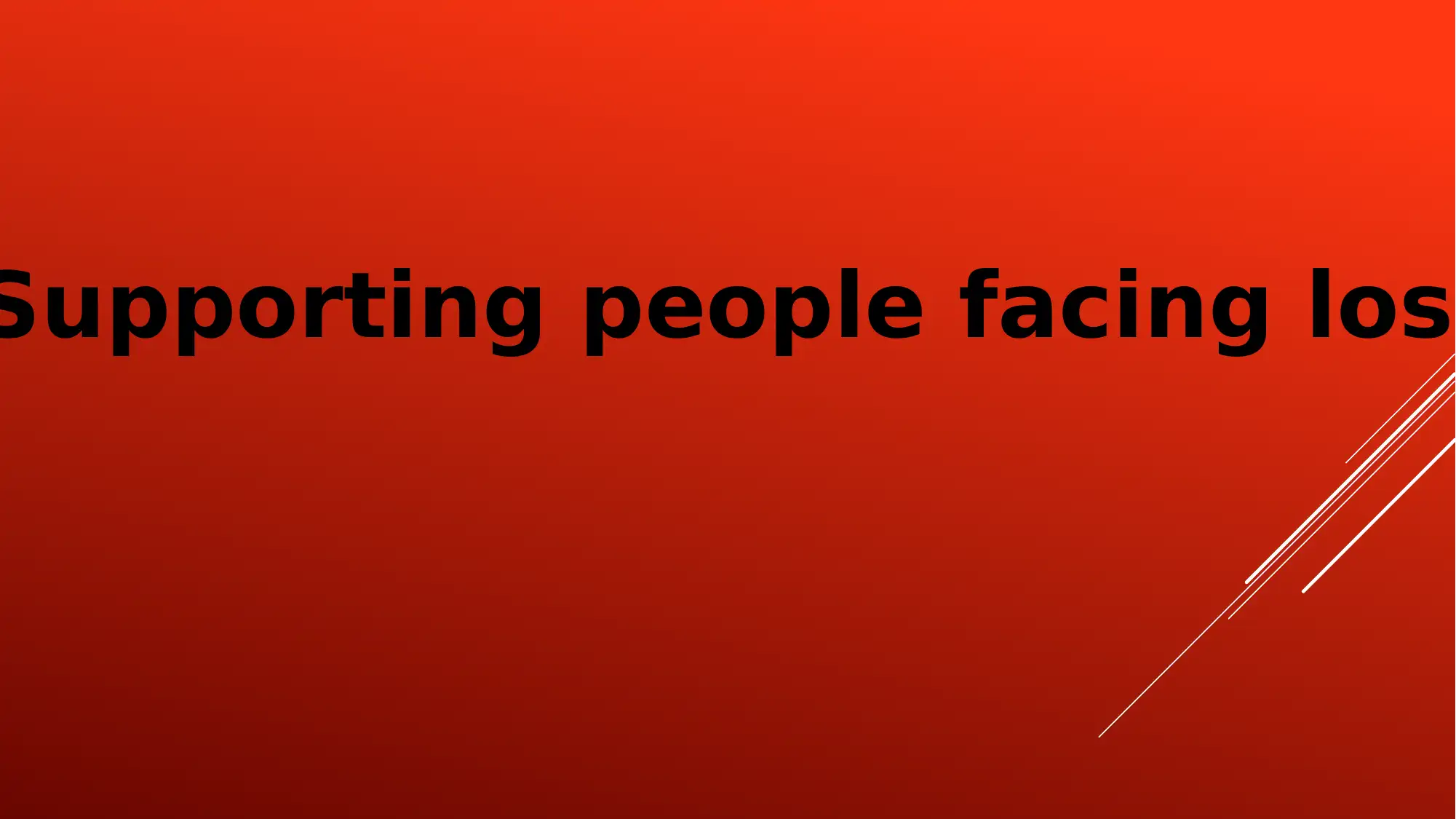
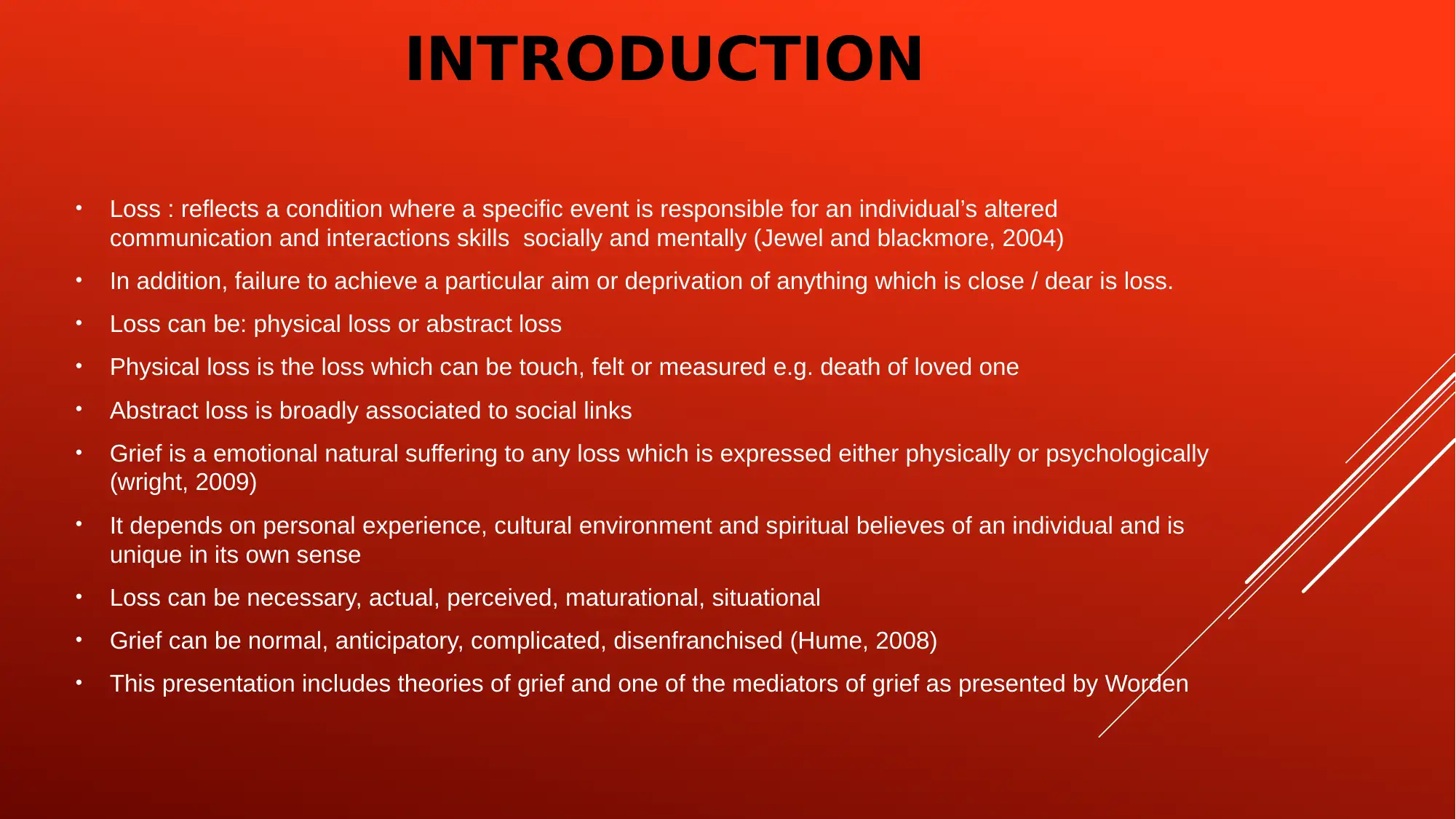
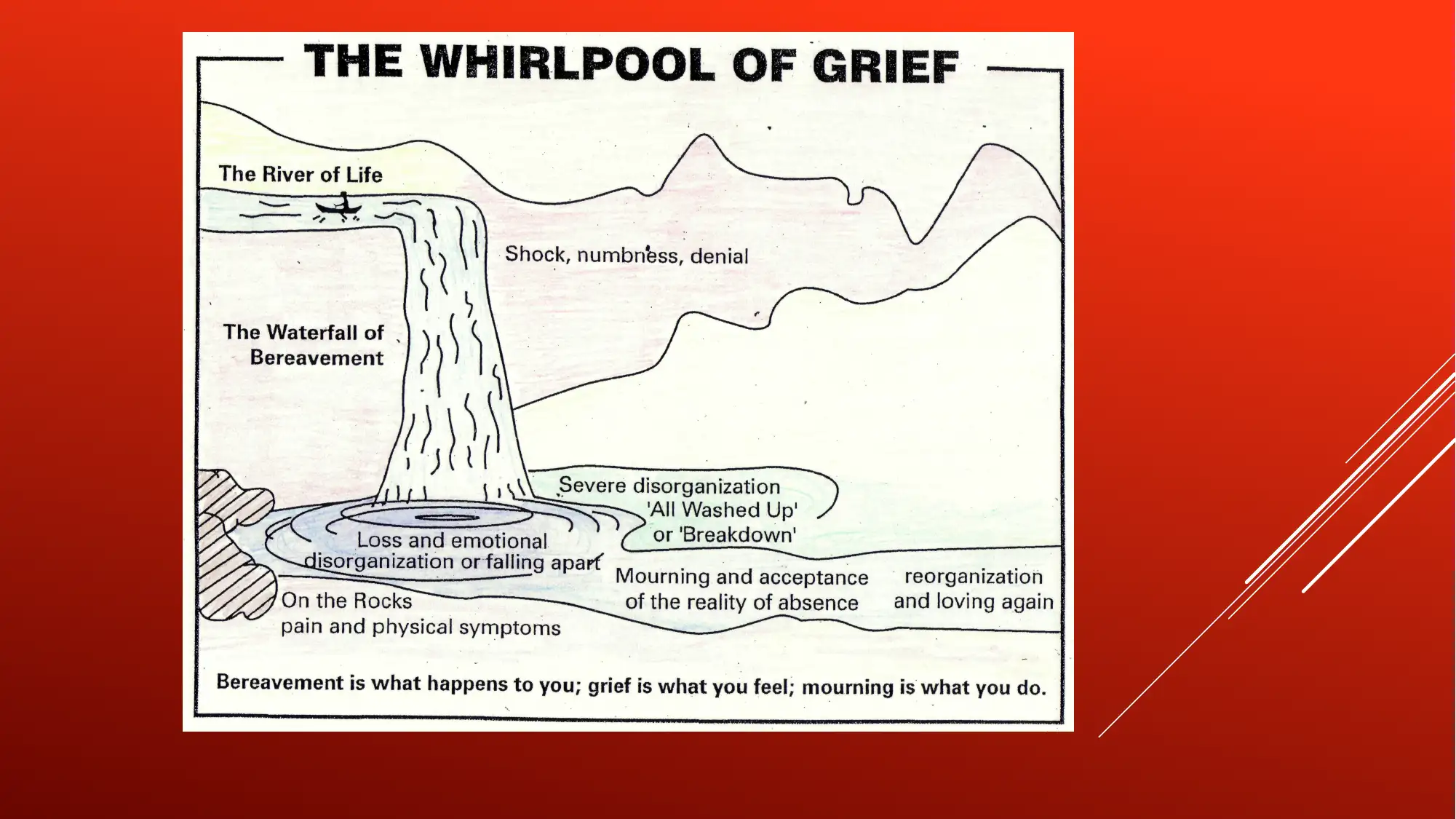

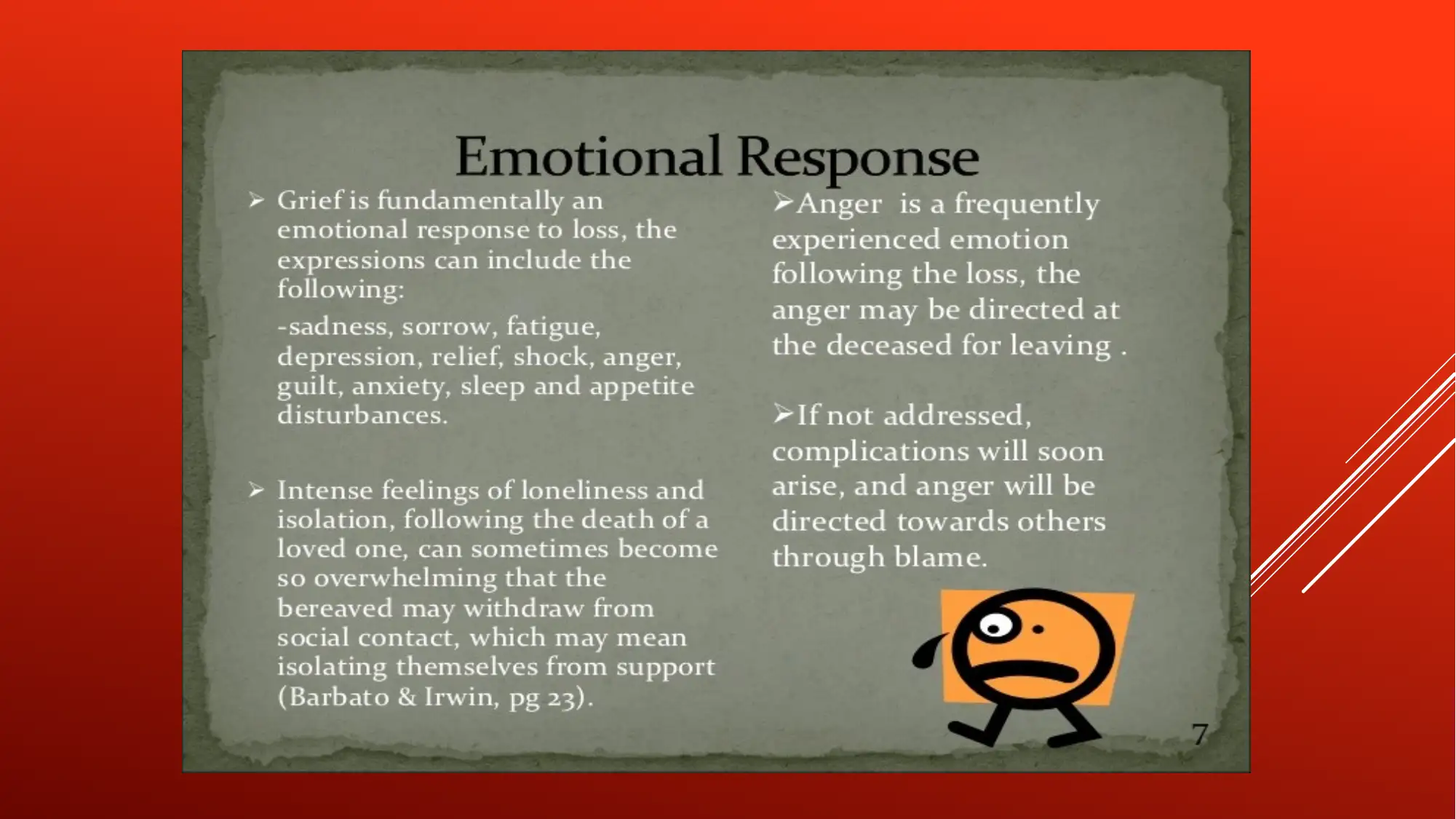
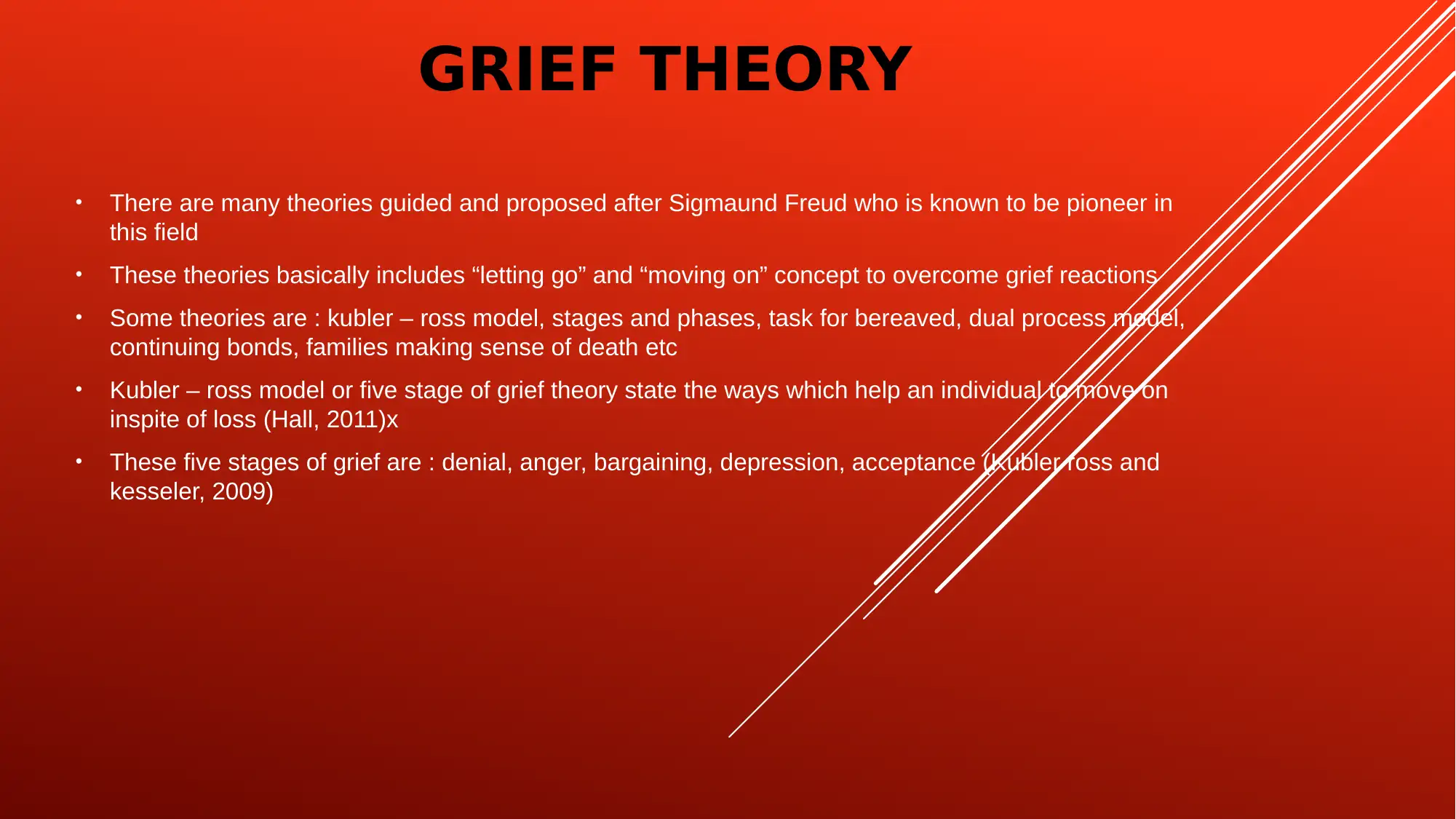
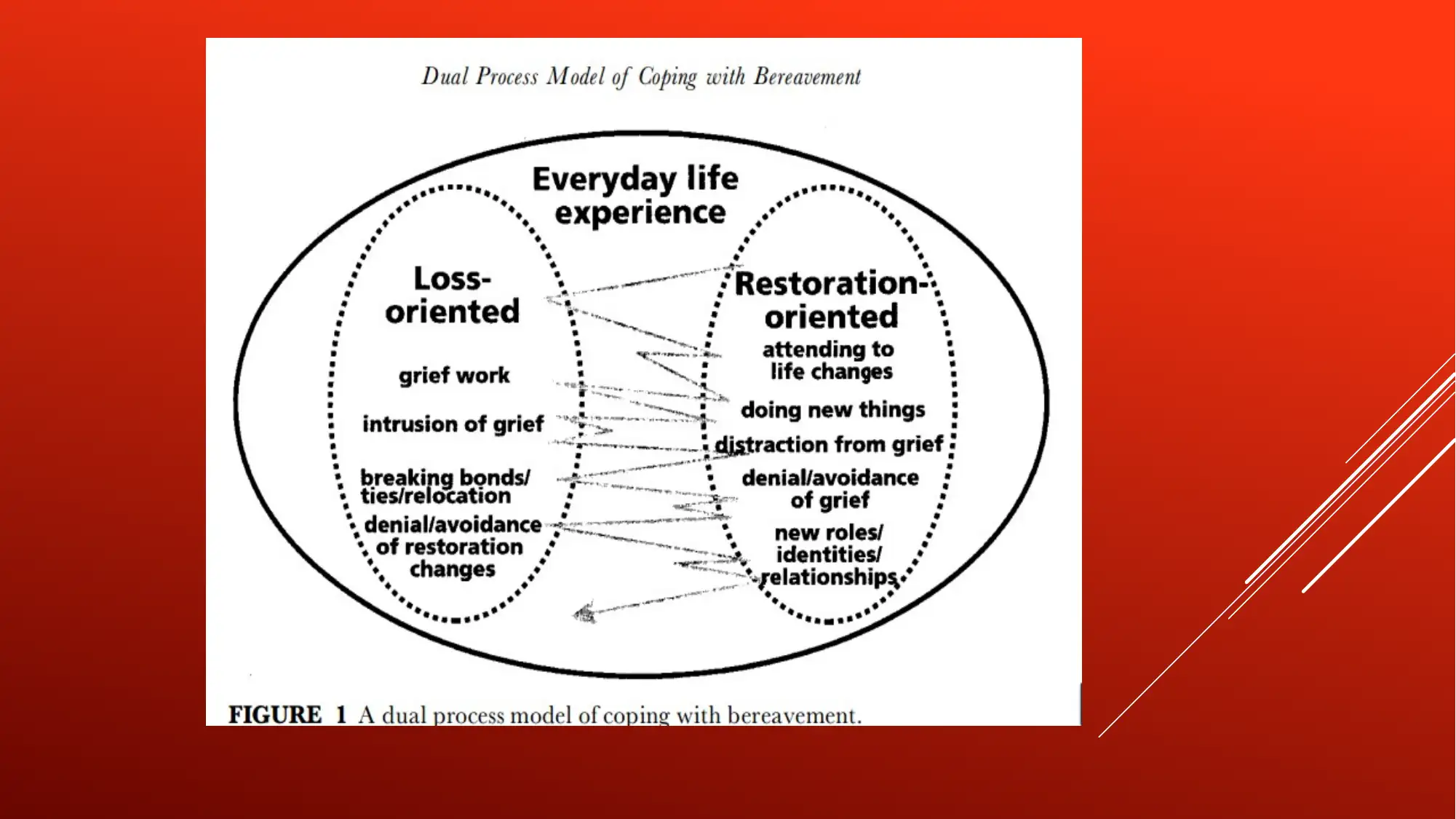
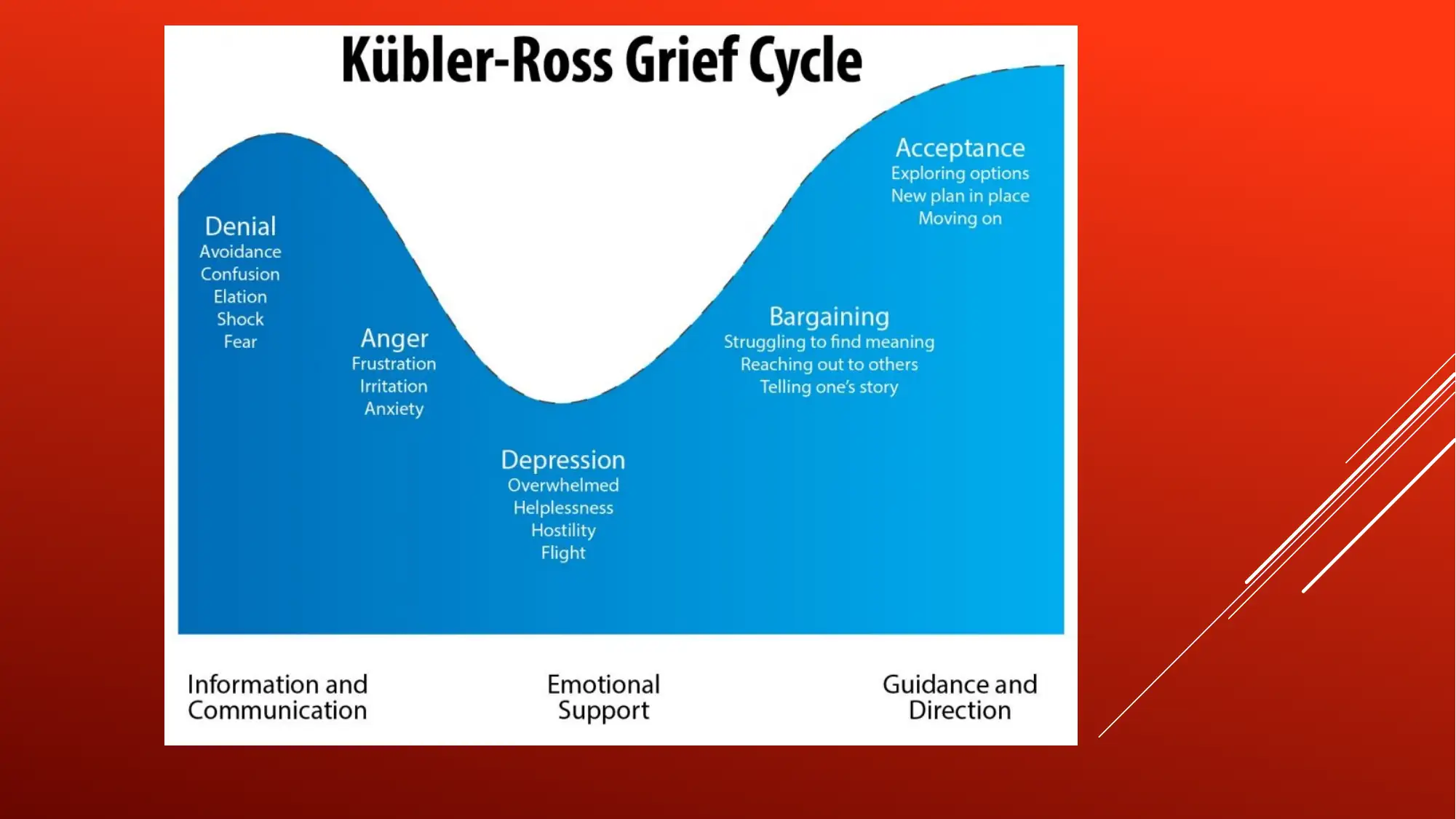
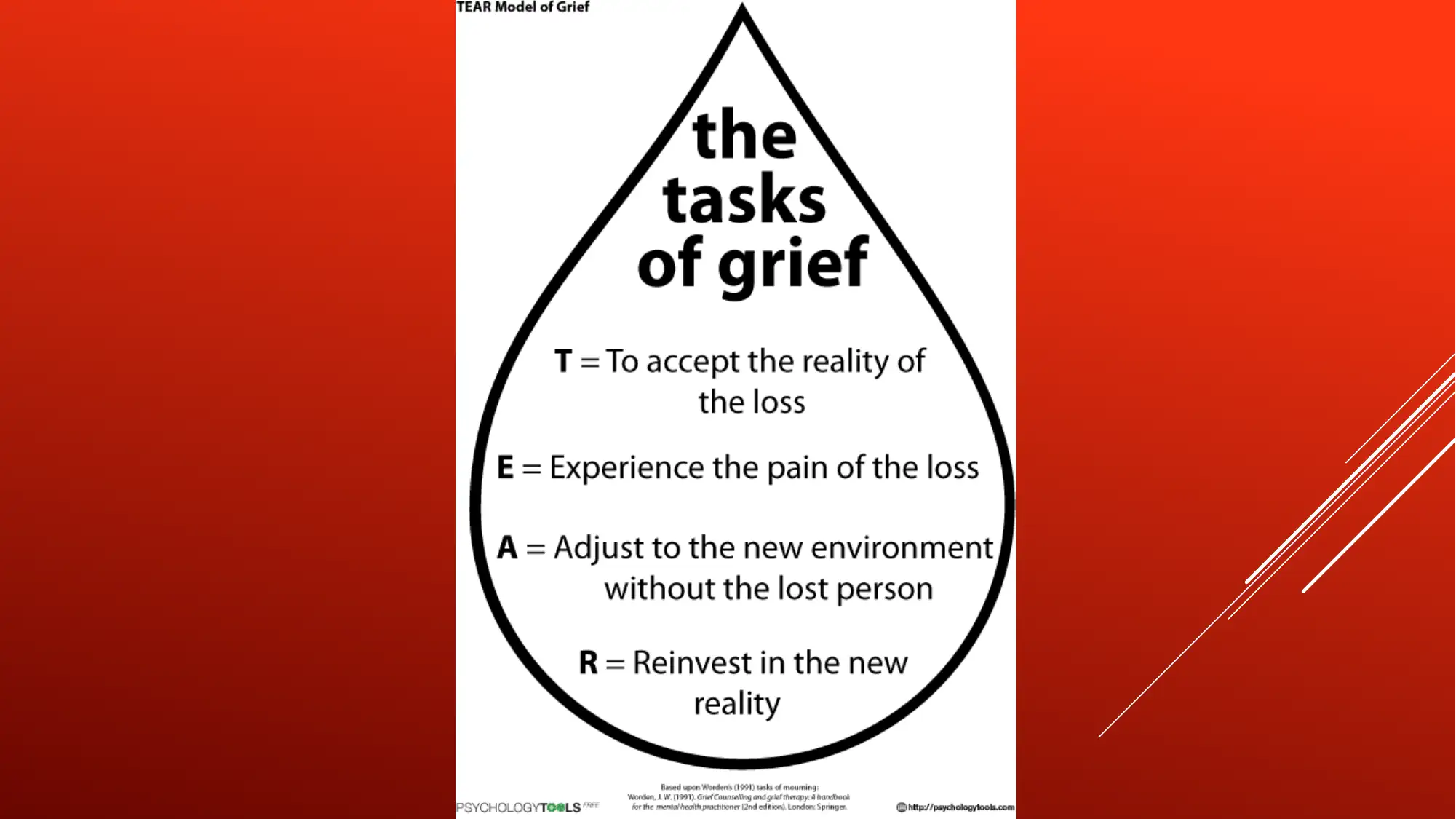
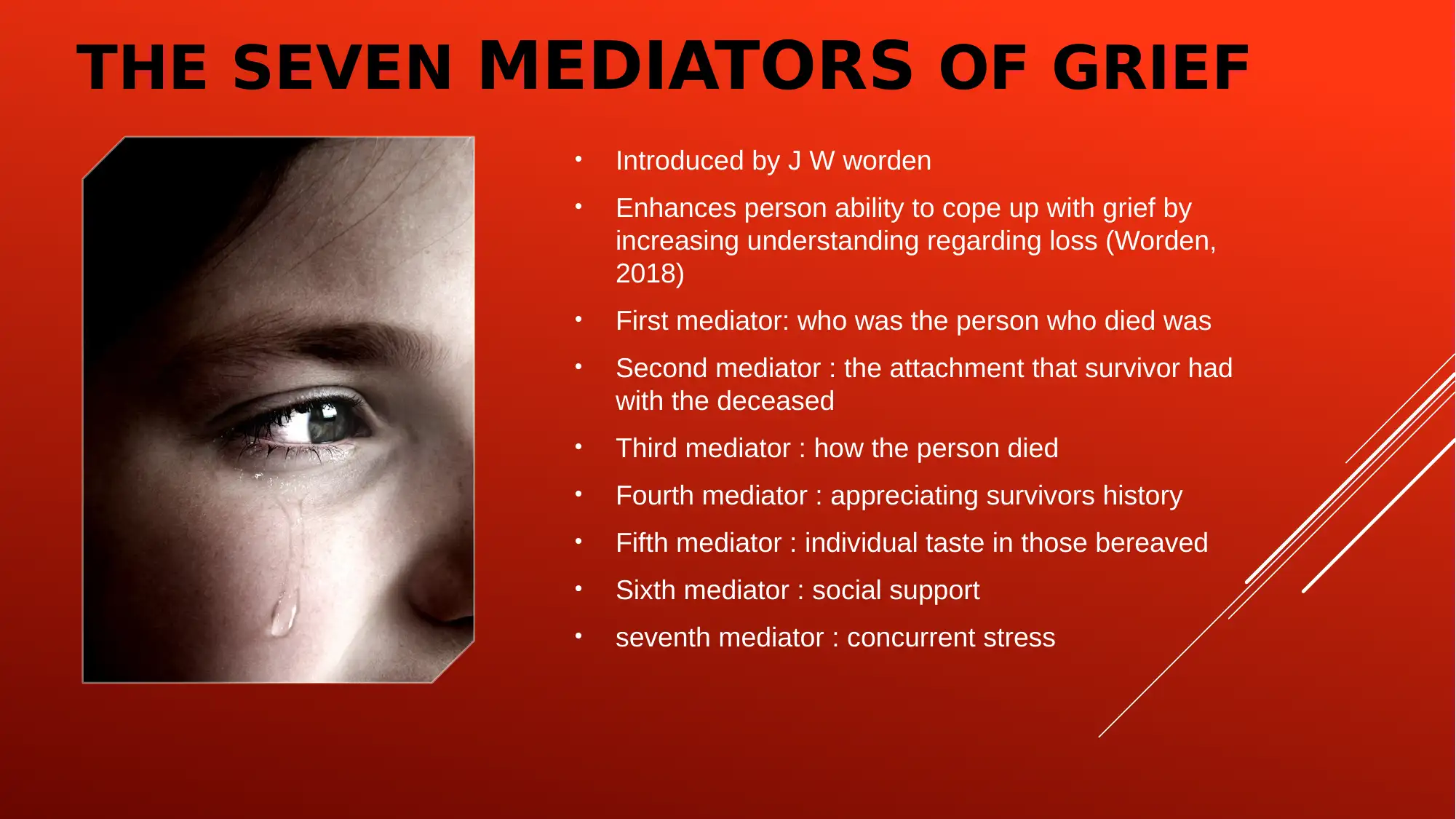
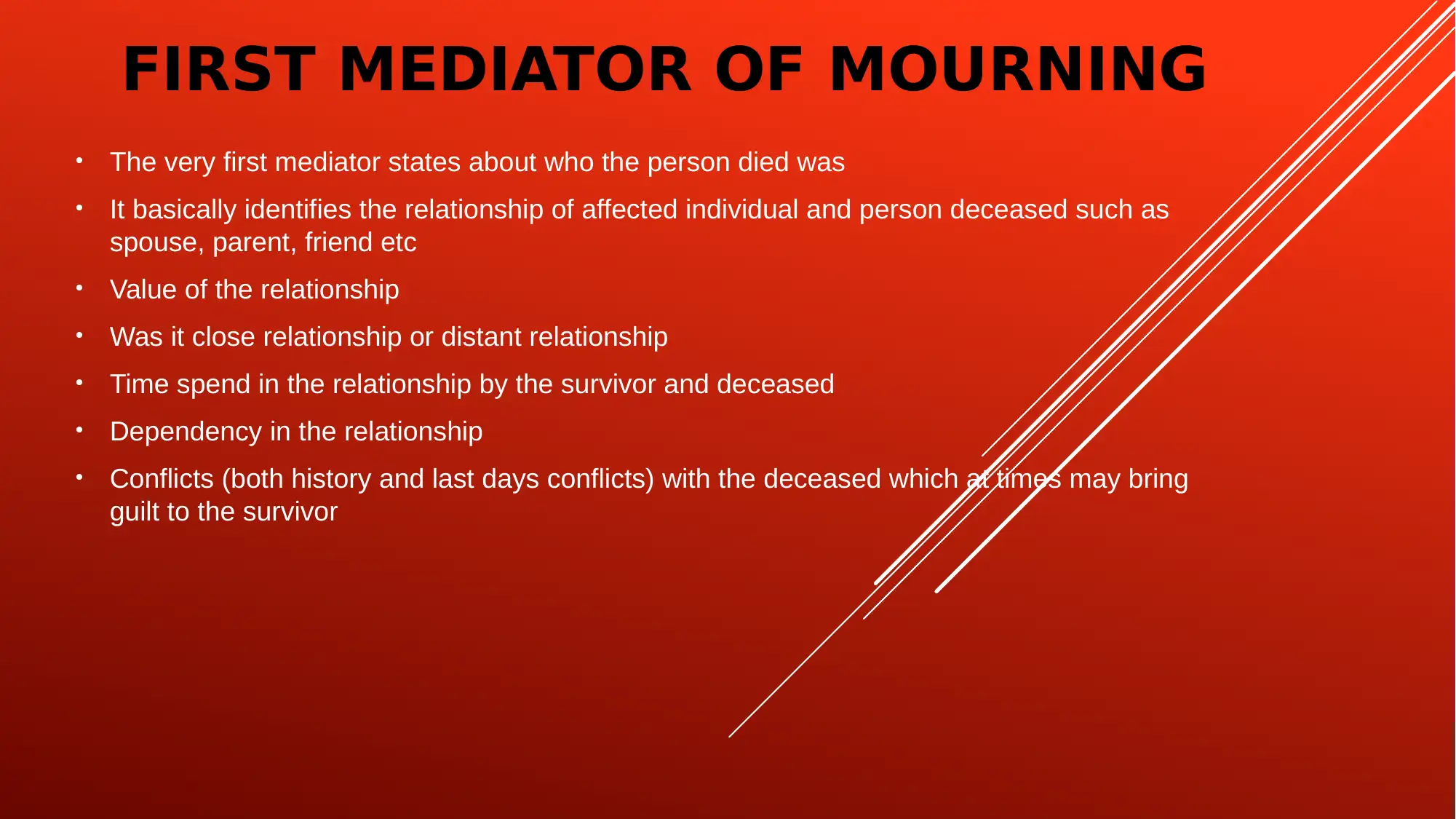
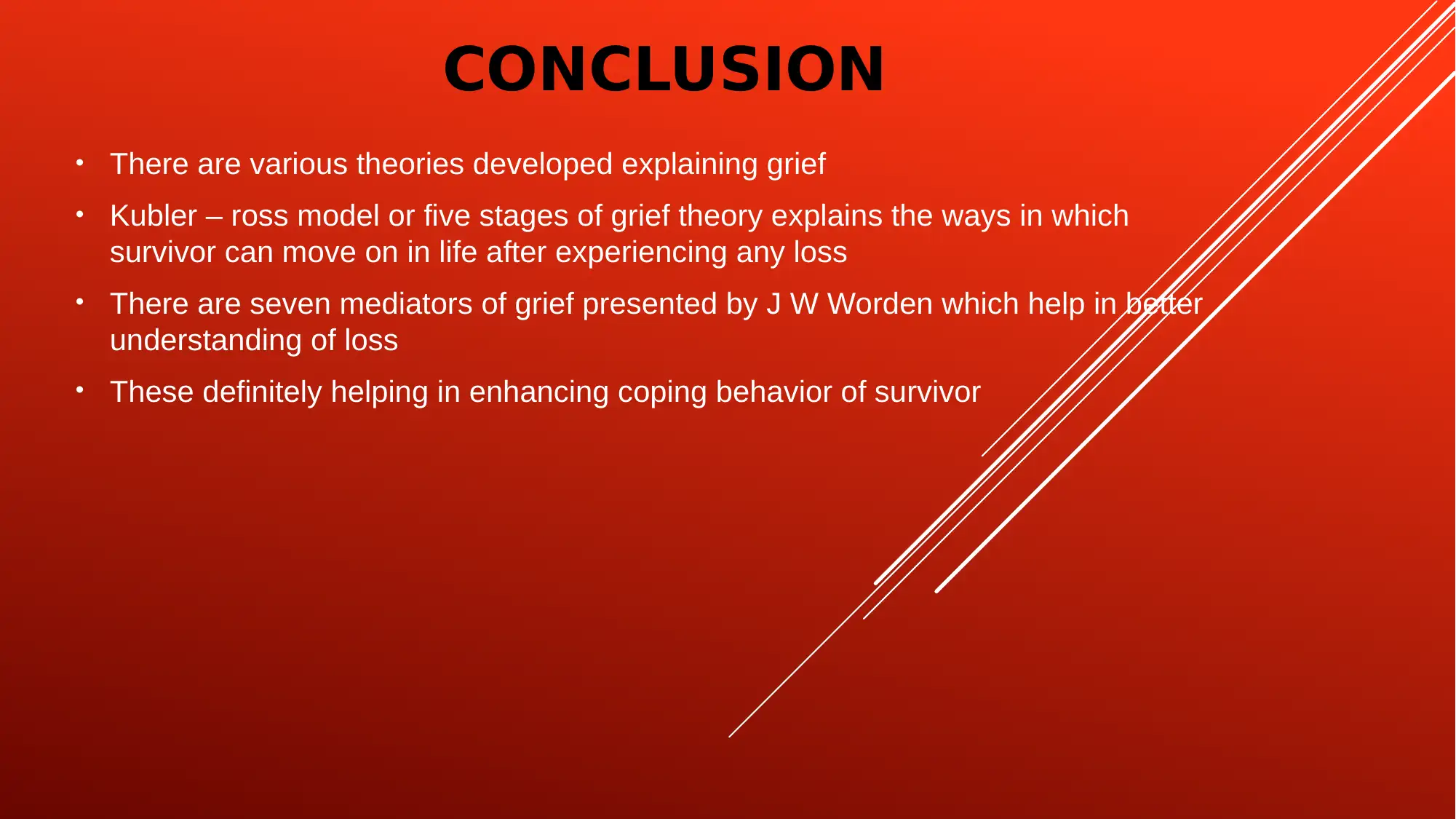
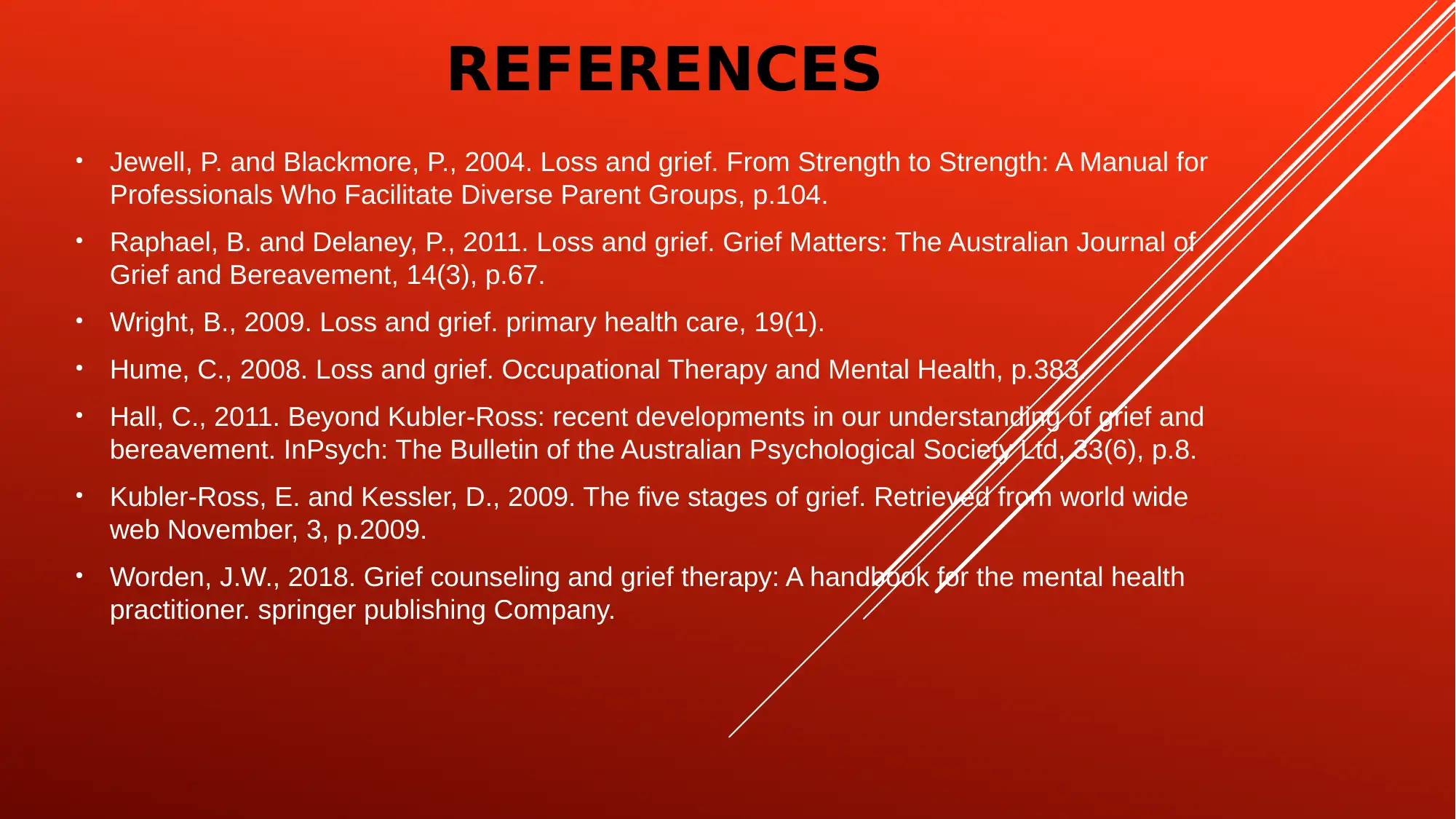






![[object Object]](/_next/static/media/star-bottom.7253800d.svg)